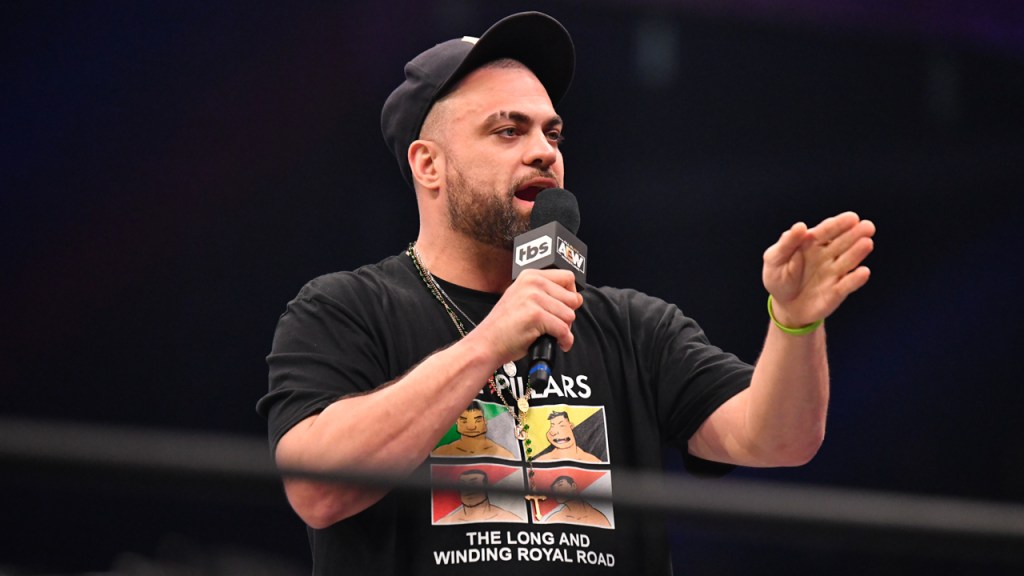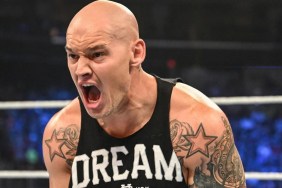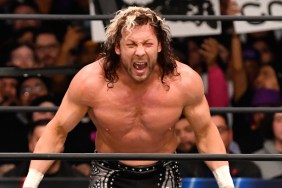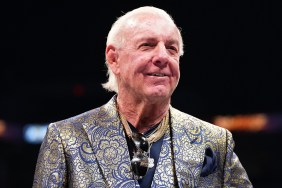AEW wrestlers can come across as larger-than-life superstars, as they’re on national television on a weekly basis. But underneath the entertaining characters they play on-screen, they’re all real people who deal with their own struggles.
Several members of the roster have previously opened up about their mental health; The Blade discussed his battle with depression and anxiety, Eddie Kingston highlighted his own in an article for The Players’ Tribune, and Dax Harwood talked about his experience with Bulimia, to name a few. Their courage in standing up and being transparent is especially remarkable because many men are stereotypically expected to be strong.
In interviews with ABC News, Kingston, AEW World Champion Hangman Page, and company president Tony Khan shared their thoughts on the importance of mental health. Kingston, who previously stated that he had a panic attack after his match at AEW All Out 2021, emphasized the importance of talking to others about your feelings. He addressed the expectation that men are supposed to be tough and rough” and admitted that, because of it, he previously dealt with his feelings by drinking or taking pills. Now, having made a lot of progress, he wants to break the stigma.
“We’ve lost enough people that, you know, I mean, in our personal lives, you know, away from wrestling, and a lot of us have lost people in wrestling we knew,” said Kingston. “And it’s because no one talks.”
“And everybody has this stigma that they had to be tough and rough. And, you know what I mean; I can’t let nobody see my weakness. So I can’t then talk to people, you know, so you hold everything in. Then you find different ways of coping. For me, it was drinking a lot. Yeah, I mean, and I know, whatever it was, it was pills and everything like that.”
ABC News cited a study by Mental Health America, which found that male suicides have risen since 2000, and 6 million men suffer from depression, which often goes undiagnosed.
AEW World Champion Hangman Page calls himself “The Anxious Millennial Cowboy”, and the beloved star has been open about his struggles on AEW TV. He stated that professional wrestling is typically a “macho world”, so feelings of doubt and insecurity aren’t’ usually explored.
“In the macho world of pro wrestling, those kinds of emotions are often the least explored and I think people were ready to see that,” said Page.
Hangman also pointed out that culture is shifting away from the idea that men aren’t supposed to acknowledge their mental health, though plenty of people haven’t grasped this change yet.”Many are unable to take into account the cultural shift that’s happened in relation to our attitudes toward even acknowledging our mental health, much less the idea that a character can go through those things without being seen as ‘weak,'” Page continued. Nearly three years after its launch, AEW has often been hailed as a fun place to work, as it allows the performers to express themselves.
Likewise, Khan is frequently described as a wonderful, caring boss. But AEW isn’t just laid-back for the sake of being breezy; the company president described how AEW has aimed to foster and maintain an environment that shows everyone that they are cared for. In doing so, Khan hopes that his company is a place where people enjoy working.”I think having a fun place to work where, you know, we create, like an environment where we really do care about the people here,” said Khan. “We try to show it and make the locker rooms here places where people aren’t going to dread coming in, and quite the opposite, where hopefully they look forward to seeing the other people that, you know, you get in the ring and fight.”
ABC News also interviewed Megha Parekh, AEW’s chief legal counselor at AEW; among other responsibilities, she also oversees the company’s mental health initiatives for the company. She described how AEW stars are human beings, so the company tries to help their mental health needs.
“Our perspective is that if we want to get the best out of people, we gotta treat them like human beings,” said Parekh. “Every single human being has mental health that needs to be taken care of.”








